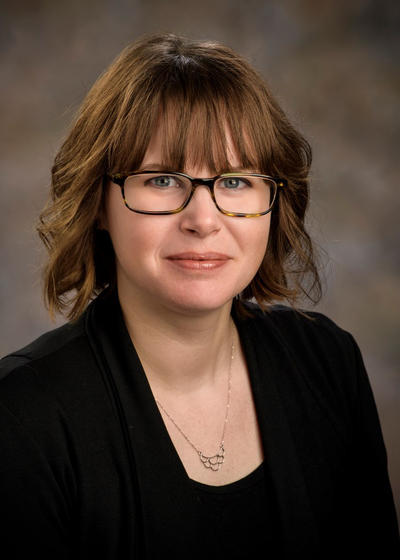
Meredith Rodgers was named director of the Applying Scientific Knowledge (ASK) program in the College of Science and Mathematics (CoSM), effective January 17, 2017.
Meredith received her BS in Biological Sciences from Wright State in 2001, and then a MS in Microbiology and Immunology from Wright State in 2003. She is currently a lecturer in Biological Sciences where she teaches M&I 2200 (Microbiology of the Human Environment) and BIO 3100/3110 (Clinical Microbiology). She takes over the directorship from Jason Deibel, Ph.D., who recently was named Chair of the Department of Physics at Wright State.
As described on its website (https://science-math.wright.edu/research/wsu-asks-applying-scientific-knowledge), the ASK program expands student research opportunities by integrating the research experience into actual coursework. Second year students start with a research methods/design course that allows them to develop skills to execute, analyze and communicate science. They build on this knowledge and become part of a "research stream" cohort for the next two semesters. Research Streams are a fully functional research effort/lab in which students do cutting edge research supplemented with bi-weekly lectures organized around their research work. Each research stream is led by faculty members who have designed a program of research using this educational model to pursue fundamental research questions. A typical “stream” could consist of 2+ faculty and approximately 10 students which could be based on traditional discipline definitions or be interdisciplinary. During the middle of the student's third year, mentors assist them in securing internships, REU positions, and other research positions. During the fourth year, we finalize the pathway via career/graduate/professional mentoring and guidance.
In the fall of 2016, CoSM ran its inaugural cohort of the WSU Students Applying Scientific Knowledge (ASK) Program. With funding secured for 2 years, this new approach could impact as many as 70+ CoSM students in the near term.

